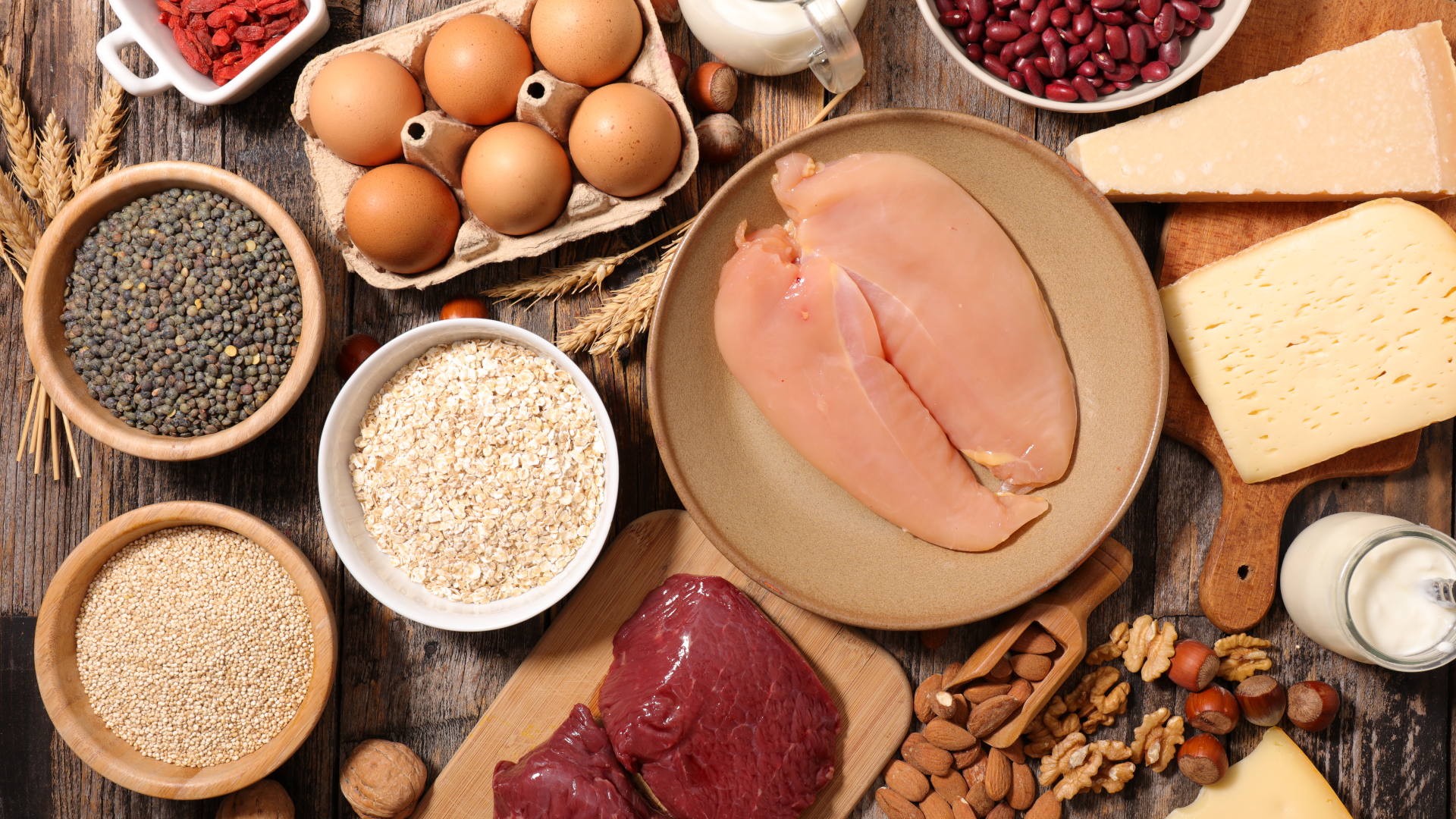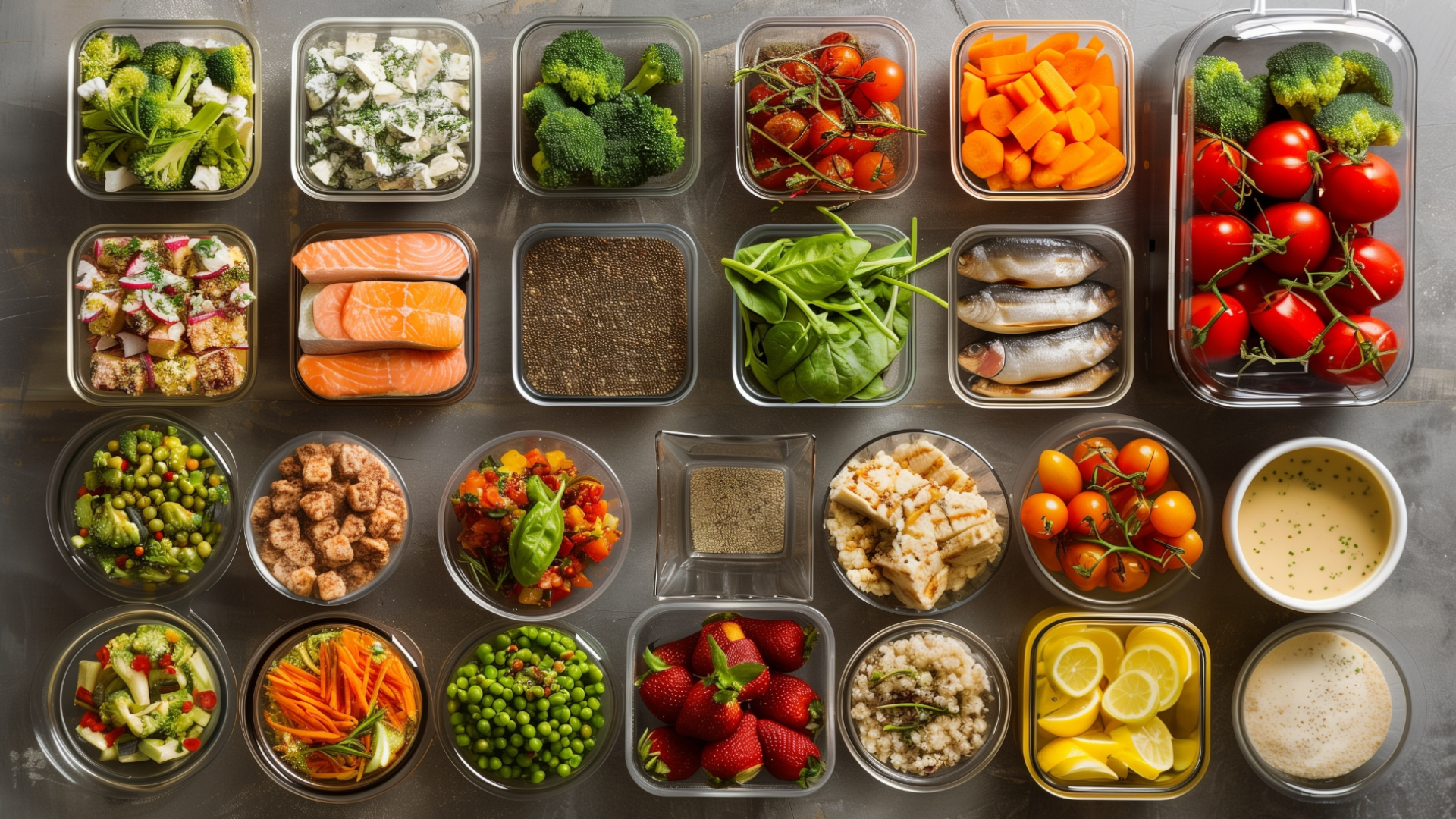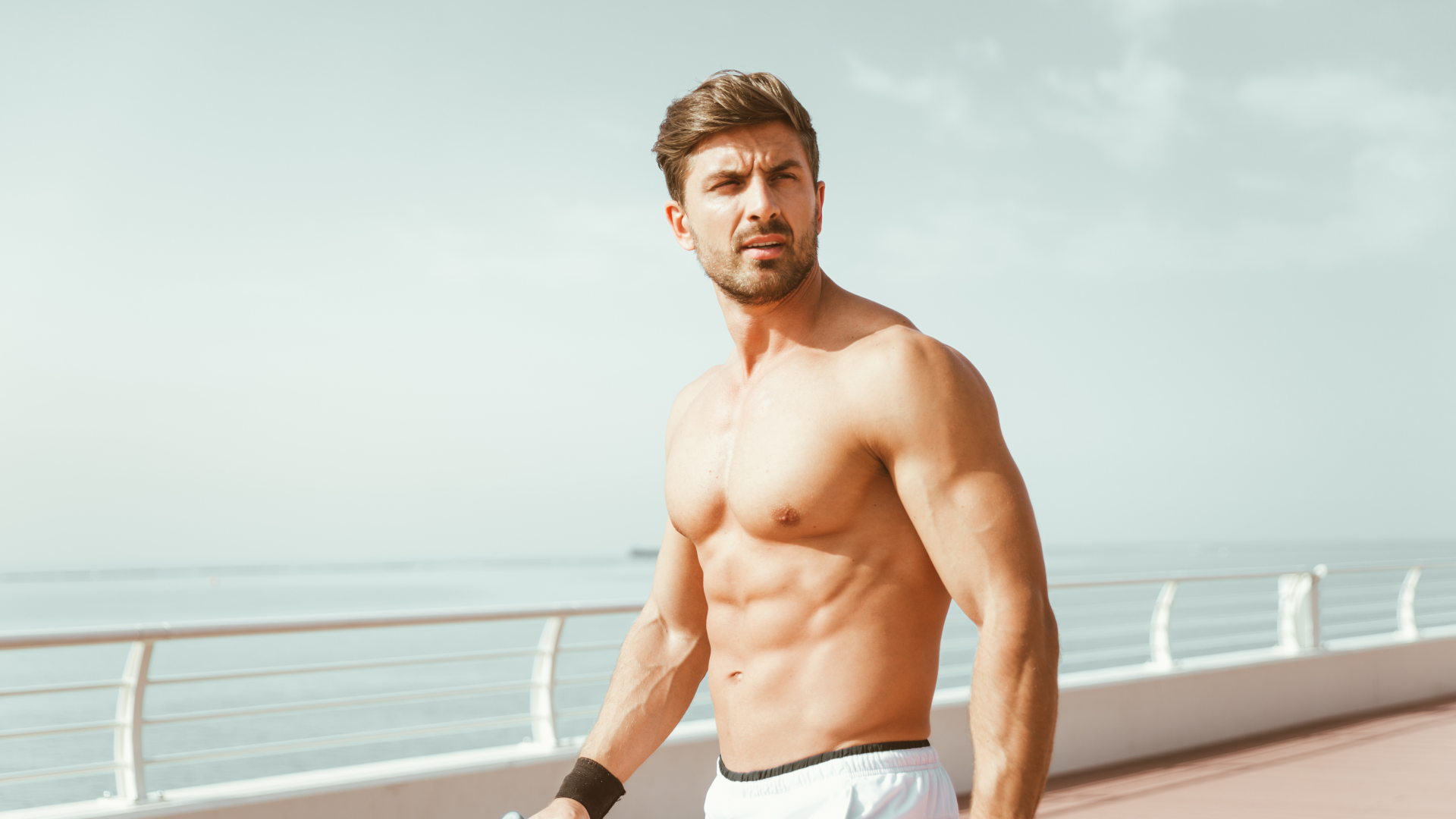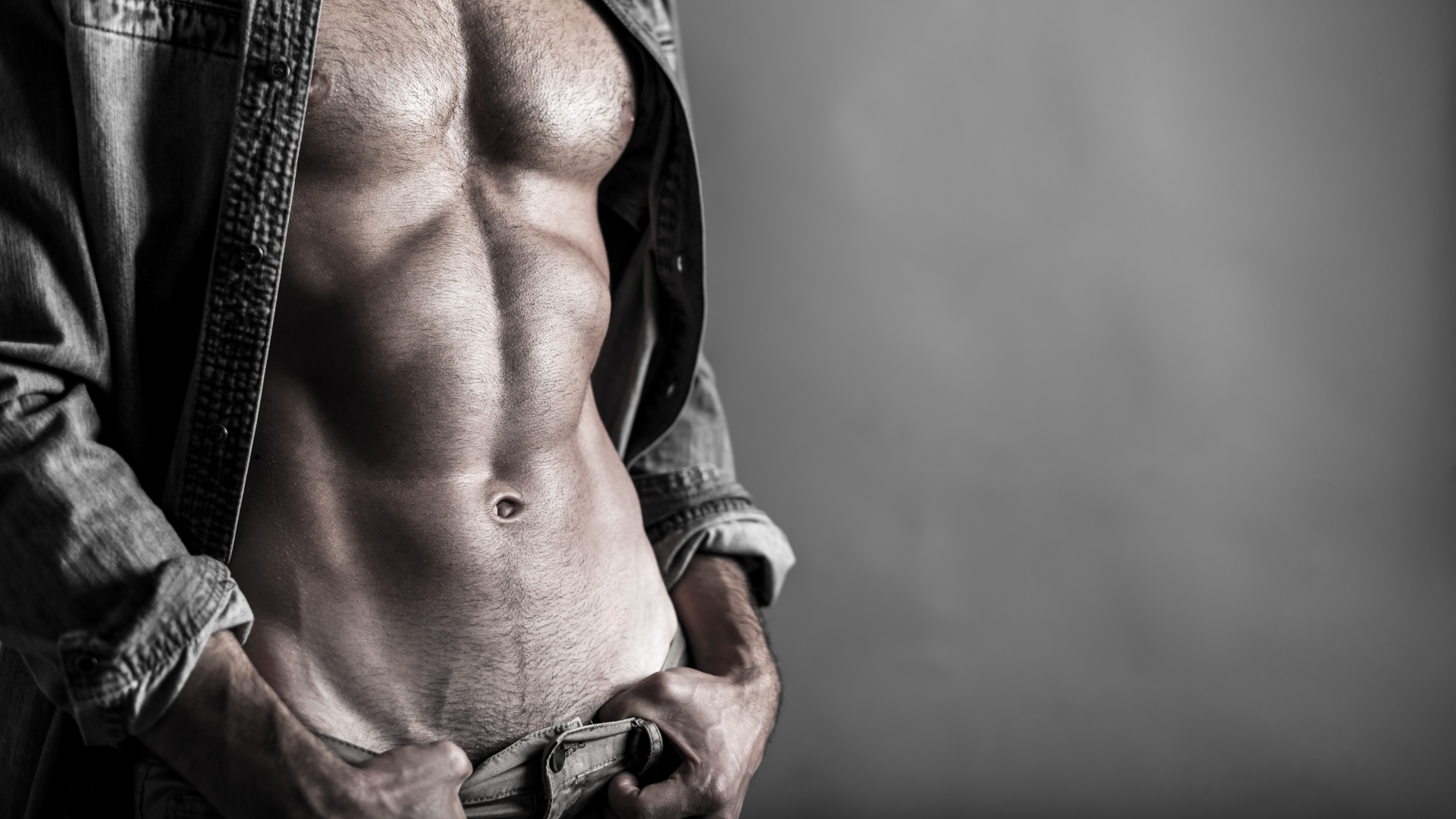Hack Beast Mode |
As the saying goes: “abs are made in the kitchen.”
No matter how good your training schedule is and how much exercise you cram into your week, you need to ensure you’re getting the right food into you, or you won’t make any progress.
If you aim to build muscle, protein should be at the top of your hit list in terms of diet, as it allows your muscles to grow and recover.
But getting enough protein into your diet can be surprisingly tricky; there are only so many chicken breasts you can eat in a day (and the cost will add up). This is why so many people lack protein-rich foods during the day (especially at work).
You might need to consume protein from various cheaper sources to achieve your protein goals at a reasonable cost.
Here are some of our favorite protein-rich foods if muscle-building is your goal.
Why do we need protein for muscle building?
Protein is essential for muscle building because it contains amino acids, the building blocks of muscle and tissue.
Working out creates tiny tears in muscles, and consuming protein helps increase muscle mass and repair muscle tears. So consuming enough protein is essential to build muscle and improve recovery.
If you're looking for a lean and shredded physique, eating more protein can also help you suppress your appetite, as it helps keep you satiated for longer. This means that you likely find it easier to stay within a calorie deficit when cutting, for example, making protein an excellent food source.
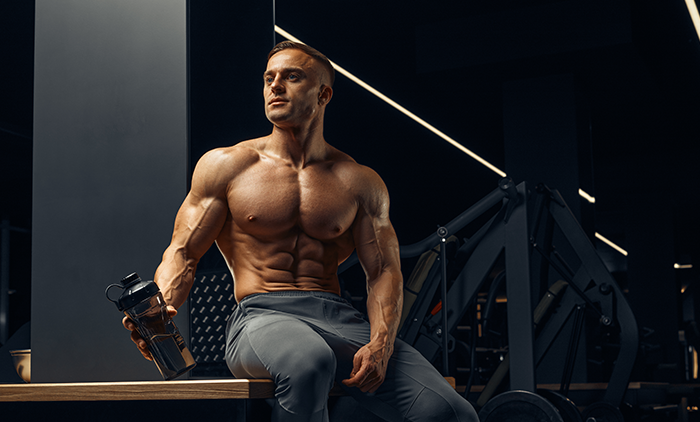
Of course, it’s not all about protein; you must include other macronutrients within your diet. Although carbs can be a scary and almost forbidden word in health and fitness circles, the truth is that you need carbs to allow the protein to unleash its full potential. This is because carbs are the first thing your body burns during exercise. Without carbs, your body will use the protein you eat to fuel you, burning them instead of carbs, meaning that less amino acid from the protein will make it to your muscles.
Eating a diet rich in protein and carbs will ensure that the candle isn't burnt at both ends, so to speak, allowing your protein to work and help your muscle growth.
How much protein should I get?
The more protein you ingest, the quicker you'll grow. However, there is a limit to this.
Numerous studies have proven that eating more protein than the recommended daily. limit produces no better results than following the guidelines. So don’t just focus solely on increasing your protein.
You should eat 1.8 - 2 grams of protein per kilogram of your body weight to get the perfect protein ratio.
Or in other words, if you weigh 100kg, you should aim to consume 180 -200 grams of protein daily.
That amount may sound like a lot, but if you focus on eating high-protein foods, you should be able to hit it. For example, a portion of chicken of 140 grams contains 43 grams of protein, just under a quarter of your total protein intake for the day.
This is why being smart with your diet can help improve your protein intake, making it easier to hit these goals. Some people may still struggle and could use help to enhance their protein intake using protein powder supplements.
It's also crucial to note that many other factors influence how much protein you need, such as your gender, age, and activity levels.
When should I eat protein?
You need more than just adding a copious amount of protein to your diet to see results. In addition to upping your intake, you should also think about the timing that you eat your protein-rich meals.
Most people will follow the traditional eating routines of a more carb-focused breakfast, light lunch full of nutrients from vegetables, and then jam all their protein into their evening meal. However, there are more effective ways to consume protein, and instead, it's best to spread your intake evenly over all your meals and snacks.
This doesn't mean you have to tuck into a massive steak when you wake up - unless you want to - but it does mean that you should try to add some protein-rich breakfast food, such as eggs, smoked salmon, and black beans, among many other things.
This spread-out approach is because it stimulates MPS, which stands for muscle protein synthesis. This is where the amino acids from the protein bind to your muscles, helping them grow and recover from exercise.
Some types of protein release their amino acids over the body more quickly than others. If you're eating protein for breakfast, you'll want one that is low releasing, such as casein, commonly found in dairy products. Casein is also commonly found in protein supplements. You can also get Whey and Soy varieties that can aid your muscle growth and maximize your gains even further when paired with good nutrition.
Top 5 High-Protein Foods for muscle building
There is a massive number of foods that are high in protein, and you're not limited to the few mentioned in this article.
However, these are some of the top protein-filled foods that are easy to incorporate into a diet that most people should easily get their hands on.
1. Lean Beef
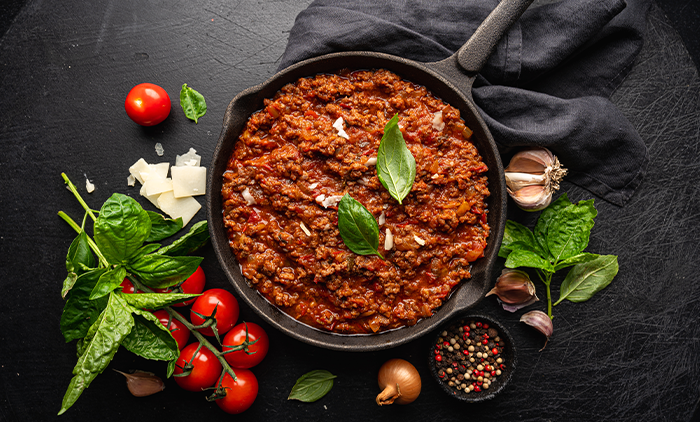
Beef is a fantastic source of protein. Many health-focused people avoid it because of its high-fat content, but you can at lean beef with the fat removed.
An 85g serving of lean beef - such as 3% minced meat - contains around 22 grams of protein. As well as this, beef also has a lot of other great nutrients to keep you strong and healthy.
For example, beef contains a lot of zinc, which is great for your immunity, and iron, which helps improve oxygen circulation around your body.
Another reason why lean beef is such a good option is that it's versatile and can be combined with many meals to help your diet stay varied yet protein-rich. You can add lean beef to things like breakfast quesadillas, add it to chili, or even combine it into burgers.
2. Skinless white meat (Chicken, Turkey)
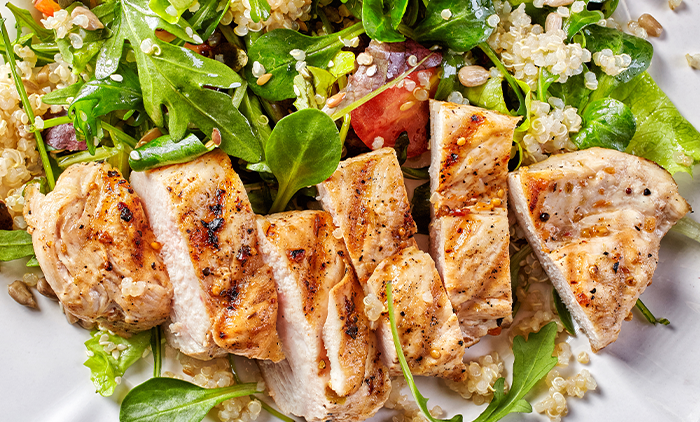
Chicken is a fantastic protein source. No matter the cut, you can expect to get around 20-30 grams of protein per 85g portion.
In addition to this massive protein content, chicken is also great as it contains more omega-6 fatty acids, which are good for brain function and memory.
White meat, like chicken and other poultry, is best consumed without the skin, as it contains more fat. Removing the skin still gives you that protein intake while keeping the meat lean and calorie low.
Like beef, chicken is a versatile meat that can be added to various meals. When cooking chicken, don't be scared to add spices and herbs to enhance the flavor of the meat.
Contrary to popular belief, spices and herbs don't add many calories, so if you've been eating plain chicken and rice, you've been torturing yourself for no reason.
What can be harmful is sauces and condiments, which contain a lot of sugar and can spike your calorie intake. Steer clear of products like ketchup, and instead, go for hot sauce if you want to add some saucy flavor to your white meat.
3. Salmon

Salmon is an often underrated and overlooked source of protein. Although some may turn their nose up at fish, salmon can provide an excellent 19 grams of protein per 85g serving.
What makes salmon such a good option is that it can be used for both breakfast and dinner.
For breakfast, just cut it thin and eat it alongside eggs. And for dinner, you can grill it and serve it with rice and veggies for a meal that contains the perfect combination of carbs and protein and fiber.
Another benefit of salmon is its distinctive flavor, which makes it different from the other meaty sources you'll typically use. Adding it to your weekly diet rotation will ensure that each meal feels distinct and varied from one other.
In addition to being such a big hitter in protein content, salmon is low in saturated fats, helping to keep you lean and fit. It also contains potassium, which regulates the fluid levels in our cells, an important process in keeping us healthy.
4. Peanut Butter
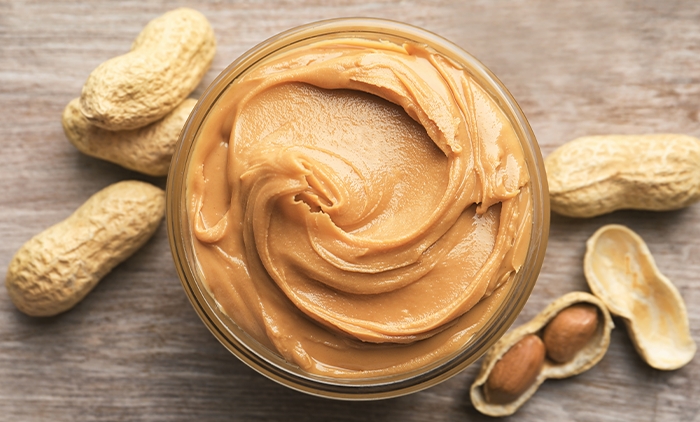
Did you think that all the best protein sources would be meat?
Well, peanut butter is one of the most protein-dense options available. Because you'll be eating small qualities, it's a great way to increase protein even if you're not hungry.
The amount of protein in peanut butter will vary depending on the brand, with some options being purposely high in protein; however, you can expect at least 7 grams of protein in just two tablespoons.
If you're not a fan of peanut butter, you can also use other nut butter, as they have similar protein amounts as well. And other nut butter often has less fat content - whcih makes them healthier overall.
5. Lentils
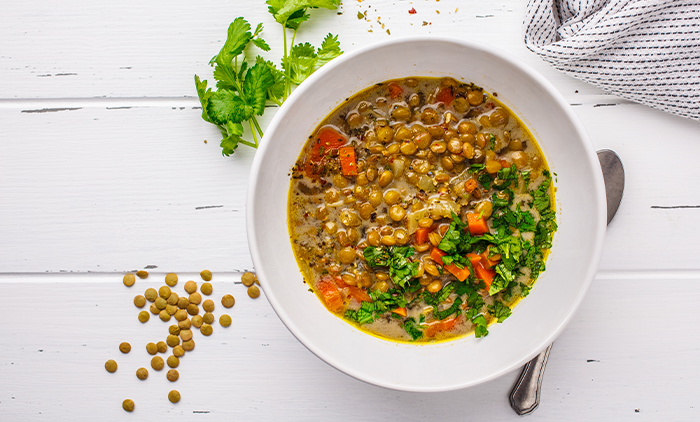
Finally, lentils are one of the best proteins to add to your diet. This legume is a meat-free savior, as just one cup of lentils, around 240 grams, contains 18 grams of protein, depending on what variety of lentils you eat.
Moreover, lentils are packed with fiber, antioxidants, vitamins, and critical minerals. If you want a healthy balanced diet, adding lentils will make you feel more energized and focused, helping you achieve your goals in the gym.
The power of protein
Protein is an essential tool when building mass. Your gym efforts could be futile if you don’t consume enough of it.
Use these foods as your building blocks to ensure you obtain the required 1.8-2g of protein per kilogram of weight.
If you want to increase muscle mass and protein consumption, you might want to look at natural supplements - such as our legal steroid and SARMS alternatives.
Over 299,434 purchases
Over 509,389 bottles sold
Over 30,563,340 pills taken
